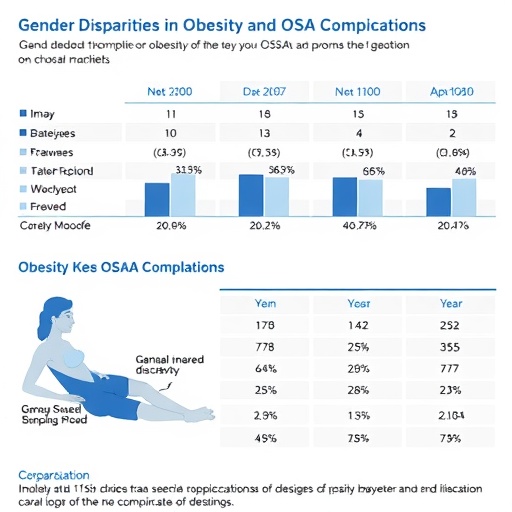PROTECT YOUR DNA WITH QUANTUM TECHNOLOGY
Orgo-Life the new way to the future Advertising by AdpathwayIn an era marked by increasing health care demands and complexities, the experiences of nurses play a pivotal role in shaping patient care outcomes. A recent qualitative study conducted in the North West Province of South Africa has unveiled significant insights into the realities faced by nurses caring for state patients. This comprehensive research sheds light on the emotional and practical challenges nurses encounter, underscoring the need for systemic improvements in both policy and practice.
The increasing burden on health care systems worldwide necessitates an understanding of the frontline workers’ experiences, particularly in environments where resources are limited. The focus of this study is to examine the lived experiences of nurses within a government healthcare setting, aimed at state patients—individuals whose care is typically dictated by institutional policies rather than personal preferences. Such insights are critical for developing effective interventions and support systems.
One of the key findings of this research highlights the emotional toll that caring for state patients can exert on nurses. The study illustrates how the pressure of working in a system that often appears constrained—by budgets, staffing shortages, or policy decisions—affects nurses’ mental health and job satisfaction. Many nurses reported feelings of frustration and helplessness as they strive to provide the best possible care within a rigid framework. This emotional burden can lead to a phenomenon known as compassion fatigue, where the ability to empathize with patients diminishes over time.
Moreover, the study surfaces the multifaceted roles nurses play in the healthcare system. Beyond traditional caregiving, they often find themselves acting as advocates for their patients, navigating the complex administrative layers to ensure that state patients receive appropriate treatments. This advocacy requires not only clinical expertise but also a deep understanding of the regulatory landscape, which can often feel daunting. The narrative of the nurses reflects a dual challenge—balancing their clinical responsibilities while engaging in advocacy that feels both essential and overwhelming.
The qualitative nature of this study allows participants to share their stories in their own words, revealing the deep-seated struggles and triumphs that accompany their daily activities. Participants described moments of joy and fulfillment when they were able to positively impact their patients’ lives, juxtaposed against overwhelming institutional challenges. This juxtaposition is pivotal in illustrating the resilience of nursing professionals who remain committed to providing compassionate care despite systemic obstacles.
The researchers also identified the critical role of teamwork and interprofessional collaboration in alleviating some of the burdens faced by nurses. While the challenges are numerous, the support found in cohesive nursing teams and collaborative relationships with other healthcare professionals can make a significant difference in the work environment. These relational dynamics not only enhance job satisfaction for nurses but also contribute positively to patient care continuity.
Training and continuous professional development emerged as significant themes within the research. The findings suggest that ongoing education and skills training are essential in equipping nurses to handle the pressures of a changing healthcare landscape. Nurses expressed a strong desire for more opportunities to upskill, emphasizing the importance of adapting to new healthcare technologies and practices that could enhance their ability to serve state patients effectively.
Additionally, the study highlights the importance of policy reforms to support nursing practice, particularly within public health settings. Policy changes are suggested to improve working conditions, increase funding for nursing roles, and enhance resource allocation toward nursing staff. There is a clear call for decision-makers to listen to the voices of nurses—those who are on the front lines and possess valuable insights into the operations and needs of the healthcare system.
In conclusion, the qualitative study provides rich, nuanced insights into the experiences of nurses caring for state patients in South Africa. By documenting their experiences, it aims to foster a greater understanding of the complexities involved in nursing practice and the urgent need for systemic changes. The findings serve as a powerful call to action for healthcare providers, policymakers, and educators to collaboratively address the challenges faced by nurses, ultimately improving care for state patients while ensuring the well-being of those who deliver that care.
The importance of gathering qualitative data in health research cannot be overstated. The stories and insights shared by nursing professionals can drive meaningful change within healthcare systems, advocate for better working conditions, and underscore the unique experiences of caring for vulnerable populations. As the healthcare landscape continues to evolve, the voices of nurses must remain at the forefront of discussions aimed at improving healthcare delivery systems globally.
This research not only contributes to existing literature but provides a foundation for future studies exploring similar themes across different regions and healthcare contexts. The shared narratives from this study can inspire further exploration into the unique challenges faced by nursing professionals around the world, creating a global dialogue on the importance of nurse well-being and professional development.
Ultimately, the evidence from this study highlights the urgent need for systemic reform and recognition of the integral role that nurses play in patient care, particularly in challenging settings. By acknowledging their experiences and supporting their needs, healthcare systems can create a more sustainable and effective workforce dedicated to the health and well-being of all patients, regardless of their circumstances. The findings of this study stand as a testament to the commitment and compassion that characterize the nursing profession, reinforcing the narrative that supportive environments are vital for the sustenance of both nurses and the patients they serve.
Subject of Research: Experiences of nurses caring for state patients in North West Province of South Africa.
Article Title: Experiences of nurses caring for state patients in North West Province of South Africa: a qualitative study.
Article References:
Mmolaeng, D., Sehularo, L. & Mpheng, O. Experiences of nurses caring for state patients in North West Province of South Africa: a qualitative study.
BMC Nurs 24, 1288 (2025). https://doi.org/10.1186/s12912-025-03953-6
Image Credits: AI Generated
DOI:
Keywords: Nurses, state patients, qualitative study, North West Province, South Africa, healthcare challenges, emotional burden, advocacy, teamwork, policy reform.
Tags: caring for state patientsemotional challenges in nursingfrontline workers’ insightsgovernment healthcare settingshealthcare system demandsmental health of nursesnurses’ experiences in South Africanursing job satisfactionpolicy impacts on patient carequalitative study on nursingsupport systems for nursessystemic improvements in healthcare


 1 day ago
9
1 day ago
9





















 English (US) ·
English (US) ·  French (CA) ·
French (CA) ·